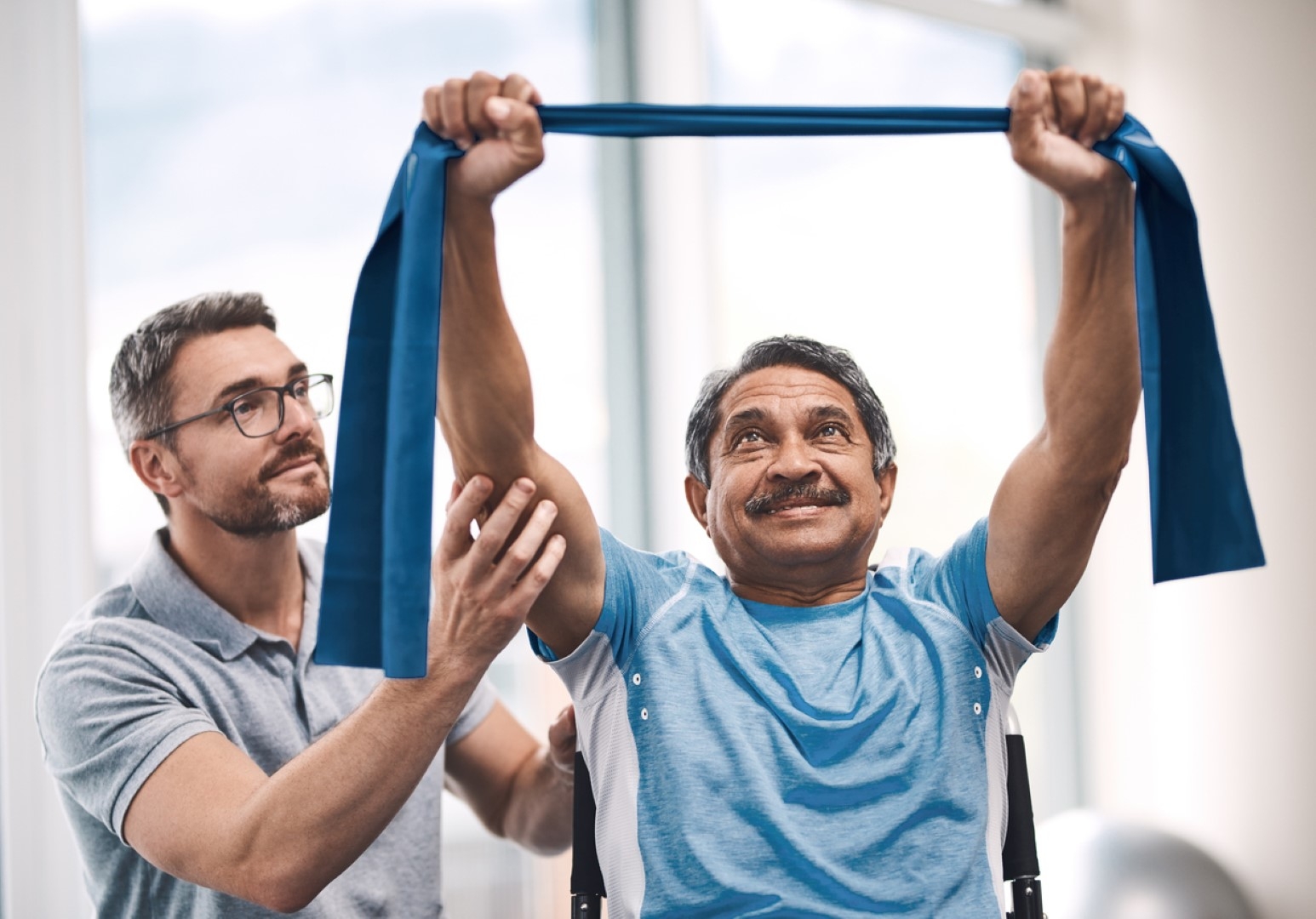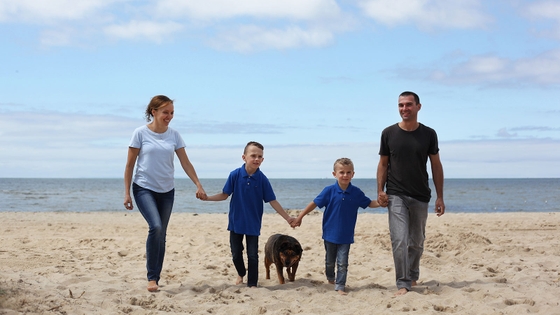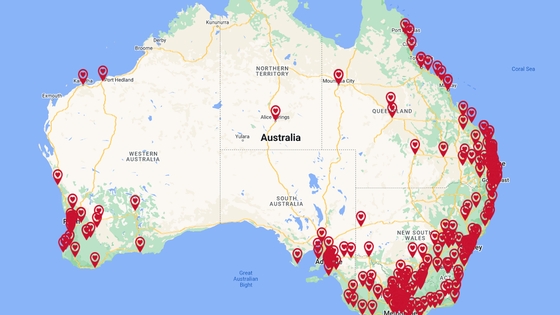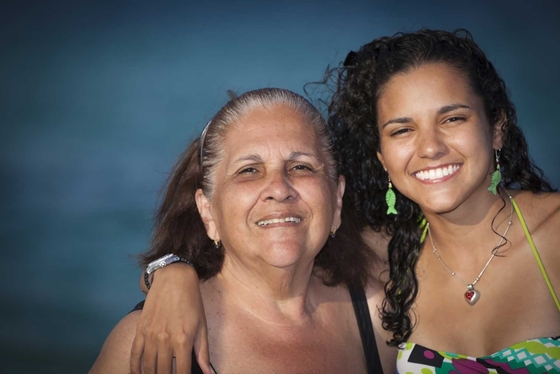
What is cardiac rehab?
Cardiac rehab is proven to keep you out of hospital and reduce your risk of death from heart conditions.
- Cardiac rehabilitation (cardiac rehab) is a program that helps you make healthy lifestyle changes.
- It involves support, exercise and education to help strengthen your heart.
- It’s safe and comfortable for people of all ages and fitness levels.
- A team of health professionals create a tailored physical activity program to suit your needs.
- It’s important to continue your healthy lifestyle changes after you’ve finished your program.
Cardiac rehabilitation (cardiac rehab) is a program of support, exercise and education that’s led by health professionals and personalised to strengthen your heart. It helps you make long-term lifestyle changes so you can live a longer, healthier life.
It helps your recovery after a heart event, procedure or the diagnosis of a heart condition. Cardiac rehab also helps lower your chances of having heart problems in the future.
Cardiac rehab is proven to keep you out of hospital and reduce your risk of death from heart conditions.
Cardiac rehab usually starts in hospital, but continues after you’ve left, either at home or in another location, such as a community centre. It often runs for 6 to 10 weeks, depending on your program and your health condition.
Programs can be:
- Face-to-face
- Over the telephone
- On the internet
- In a group or one-on-one
- In hospitals, community centres or clinics
- In your home.
As cardiac rehab often involves physical activity and exercise to improve heart health, it can sometimes be daunting. Don’t worry if you find some exercises challenging or have never done them before. An expert will give you safe exercises to suit your ability.
Through a cardiac rehab program, you’ll be better able to return to your usual activities, such as working, driving or having sex.
Is cardiac rehab for you?
Cardiac rehab is recommended for you if you’ve had:
- Coronary heart disease
- A heart attack or admission for angina
- A stent procedure or heart surgery (bypass, valve or artery surgery)
- Heart failure and cardiomyopathy
- Heart transplant
- A device insertion, for example a pacemaker or implanted defibrillator
- A cardiac arrest
- In-heart electrical rhythm problems, such as atrial fibrillation
- High blood pressure in your lungs (pulmonary hypertension)
- An event (stent, PCI, CAGS).
Each cardiac rehab service will have its own areas of specialty. For example, some support atrial fibrillation patients while others don’t.
To find out which program is best for you, speak to your healthcare team or contact your local cardiac rehab program. To find your closest cardiac rehab service, use the Heart Foundation’s Cardiac Services Directory.
More about cardiac rehab
What’s involved in cardiac rehab?
At cardiac rehab, you learn about your heart condition and your treatments. Your program will be personalised to your needs, including medicines education, exercise programs, and other support.
The aim is to help you make long-term lifestyle changes to improve your wellbeing, but also reduce your risk of future heart or stroke events. Cardiac rehab also helps you to feel better about yourself through counselling and connecting with people who have had similar experiences.
You get access to:
- A healthcare team – The cardiac rehab provider will work with a team of healthcare professionals. This might include: a doctor, nurse, dietitian, physiotherapist, exercise physiologist, occupational therapist, social worker, psychologist or pharmacist.
- An exercise and education program – Your cardiac rehab team will give you safe, personalised exercises to suit your health needs.
At cardiac rehab, you will be supported to:
- Improve your diet
- Keep your weight at a healthy level
- Quit smoking
- Manage your medicines
- Manage other conditions, such as high blood pressure, high cholesterol or diabetes
- Recognise the warning signs of a heart attack and what to do in an emergency
- Manage stress, anxiety and depression.
You can also ask questions or discuss things that worry you.
Your first visit
Your healthcare team will check your physical abilities, look at your medical history and other conditions you may have. They’ll also consider risk factors like family history, which could influence your heart condition.
The check will include a small amount of physical activity to see how much exercise is safe and comfortable for you. After the check, the healthcare team will develop your personalised cardiac rehab program.
Your healthcare team will keep track of your progress over time. They will carry out ongoing checks and make small changes to your program, if necessary, to make sure it continues to meet your needs.
Should problems occur while you are attending cardiac rehab, the staff will be able to get you expert help promptly. On completion of your program, the cardiac rehab staff will send a report to your doctor about your progress and achievement in the program.
Cardiac rehab exercises
Exercise strengthens your heart, lowering your chances of having heart problems in the future. Because they’re low impact, they’re not likely to cause injuries.
Don’t worry if you find exercise challenging or haven’t done it before. Starting or returning to physical activity takes time. Your healthcare team will show you exercises that are safe and comfortable for you.
If you’re concerned about an exercise or uncomfortable either during or after an exercise, let the staff know so they can adjust your program.
Exercise might include:
- Walking
- Cycling
- Rowing
- Jogging
- Weightlifting
- Resistance training.
You’ll learn good exercise practices that help prevent injuries, such as warming up and cooling down.
Many cardiac rehab centres also show you exercises that you can continue after you finish the program. If they don’t, it’s still a good idea to continue your safe exercises.
Mental health support
It’s normal to feel down or stressed after being diagnosed with a heart condition. These feelings are usually short term and will improve with time as you adjust to living with a heart condition.
However, some people develop anxiety and depression after a heart event and this requires support from your healthcare team. If you’re worried about how you ‘re feeling, tell someone and seek help.
Cardiac rehab is a place where people often feel they can talk about some of the feelings that occur after a heart event. Staff will be able to support you and find you help if that’s necessary. This might involve counselling, medicines, or simply speaking to people who’ve been through the same thing.
For more information about looking after your mental health and wellbeing after a heart attack, angina or heart disease diagnosis, join the MyHeart MyLife support program.
Family and friends
Many cardiac rehab programs let you involve your family and friends, helping them to better understand your condition and how they can help you.
Some programs even allow family and friends to sit in on education sessions and watch or join you in your exercises. This can help to keep you motivated.
However, it should be noted that not all programs allow family and friends into certain areas and sessions like the gym.
What do you do after you’ve finished cardiac rehab?
Once you have a heart condition, you need to manage it for the rest of your life. The goal of cardiac rehab is to develop healthy habits that you can continue into the future.
At the end of cardiac rehab, you should continue your new healthy lifestyle. By eating healthy food and exercising regularly, you’ll improve your heart health and lower the chances of going back to hospital.
Need extra information and support to stick with heart-healthy habits? Our MyHeart MyLife support program can help.
When should you start cardiac rehab?
It may be difficult to start cardiac rehab when you're not feeling well physically or mentally, but there are many benefits of starting cardiac rehab soon after an event or diagnosis. Remember, staff are there for your safety and to support you, and your long-term health and wellbeing.
Ideally you should start cardiac rehab a few weeks after you leave hospital. Don’t worry if you’ve been out of hospital for longer than this, you should still go to cardiac rehab to get benefits.
When deciding on your start date, the cardiac rehab staff will consider your heart condition and medical history.
For more information, speak to your GP or contact your closest cardiac rehab centre using our Cardiac Services Directory.
Finding a cardiac rehab program
You can find a cardiac rehab program by asking the hospital staff or your doctor. They’ll help you enrol in a program near you.
Alternatively, search our Cardiac Services Directory.
Join the MyHeart MyLife support program
MyHeart MyLife is our free digital program for people who have had a heart attack, angina or been diagnosed with heart disease. The program goes hand-in-hand with cardiac rehabilitation by giving you extra information and support.
By joining, you’ll get access to:
- heart health information, expert guidance and practical tips via online articles and short videos
- supportive text messages and emails to motivate and inspire
- access to the MyHeart MyLife online support community, where you can connect with others on a similar journey to you.

Long-term recovery after a heart attack
Information to help you adjust to what could be the 'new normal'

Find a cardiac rehabilitation service near you
Cardiac rehabilitation helps your recovery after a heart procedure or the diagnosis of a heart condition. It also helps lower your chances of having heart problems in the future.

Caring for someone after a heart attack
Your role as a carer for a heart attack patient is an important one – explore some useful things to know.
Last updated11 August 2024
